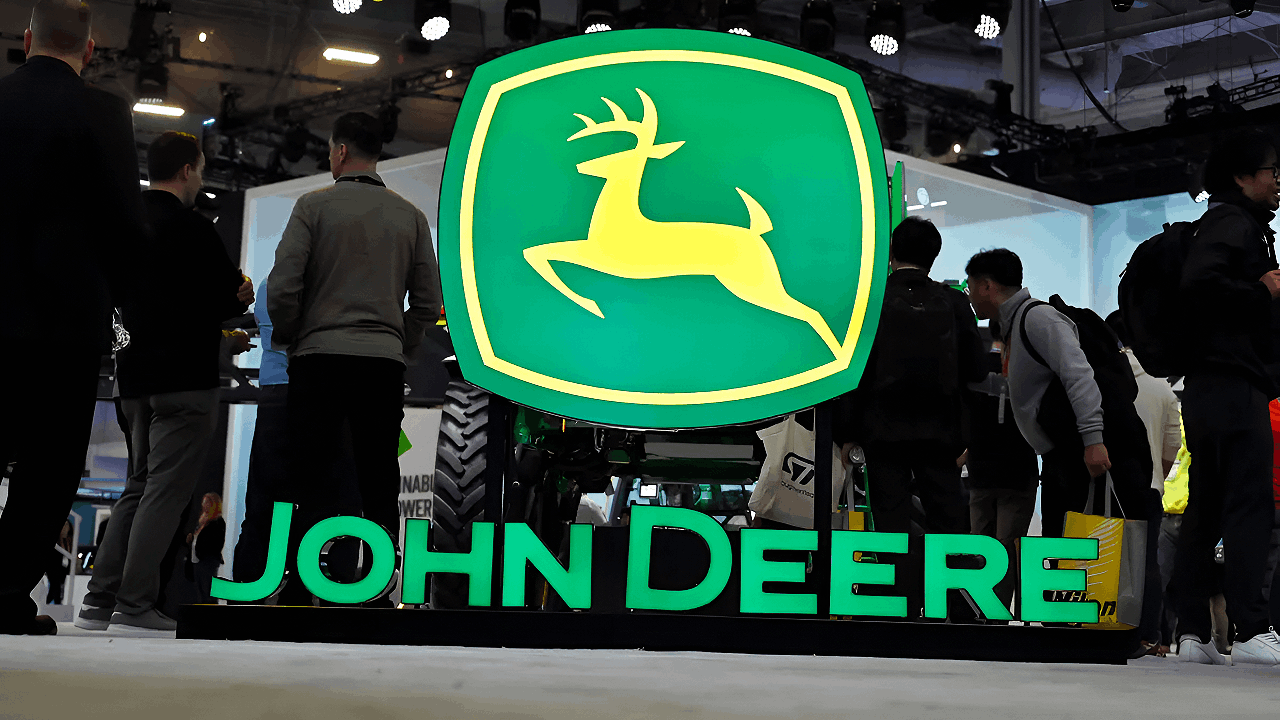
John Deere, the well-known American maker of farm equipment, is cutting jobs in Iowa through 2025. The job losses are affecting communities in Waterloo, Ottumwa, Des Moines, and Ankeny.
This comes even as CEO John May earned $27.8 million in total compensation for fiscal year 2024, according to company records. While reducing its workforce in Iowa, the company based in Moline is increasing its production investments in Mexico.
Cumulative Damage
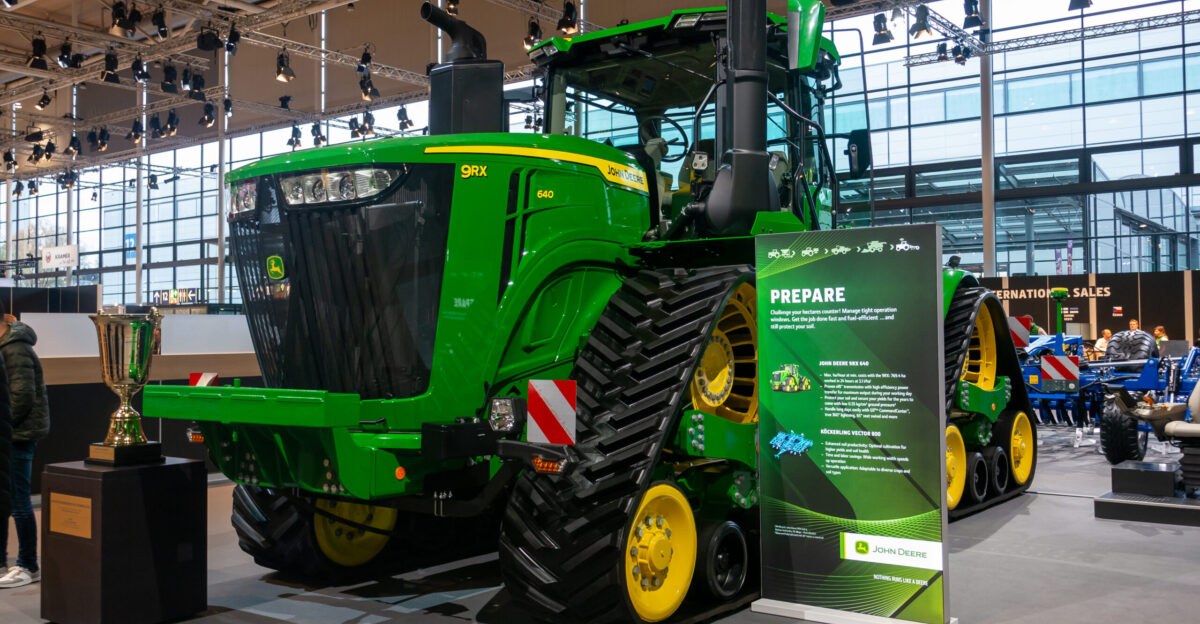
From early 2024 to October 2025, John Deere cut over 2,600 jobs in Iowa and Illinois. In 2024 alone, 1,599 jobs were lost in Iowa due to a weak agricultural economy and declining equipment demand.
The company cited lower order volumes and a 37% drop in corn prices since 2022 as reasons for the layoffs, according to analysis by Investigate Midwest
Historic Pattern
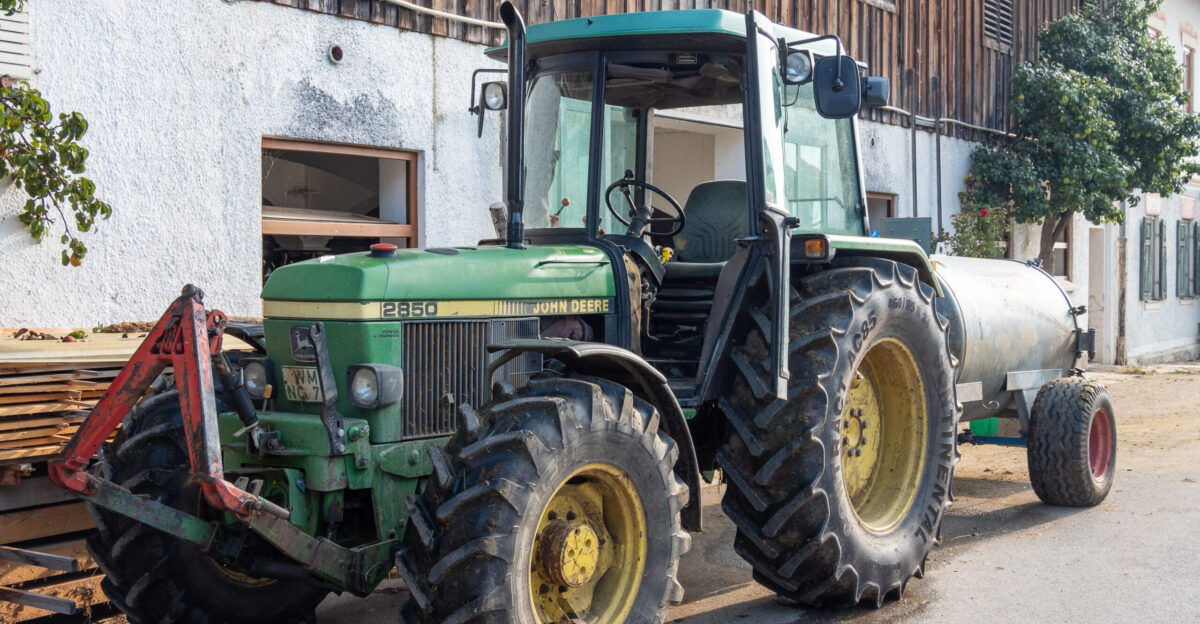
Since April 2024, Deere & Company has implemented 26 rounds of layoffs in Iowa, significantly impacting the state’s manufacturing sector.
Despite reporting a net income of $7.131 billion for fiscal year 2022, the company’s workforce in Iowa has continued to decrease, while executive compensation remains high.
Tariff Squeeze
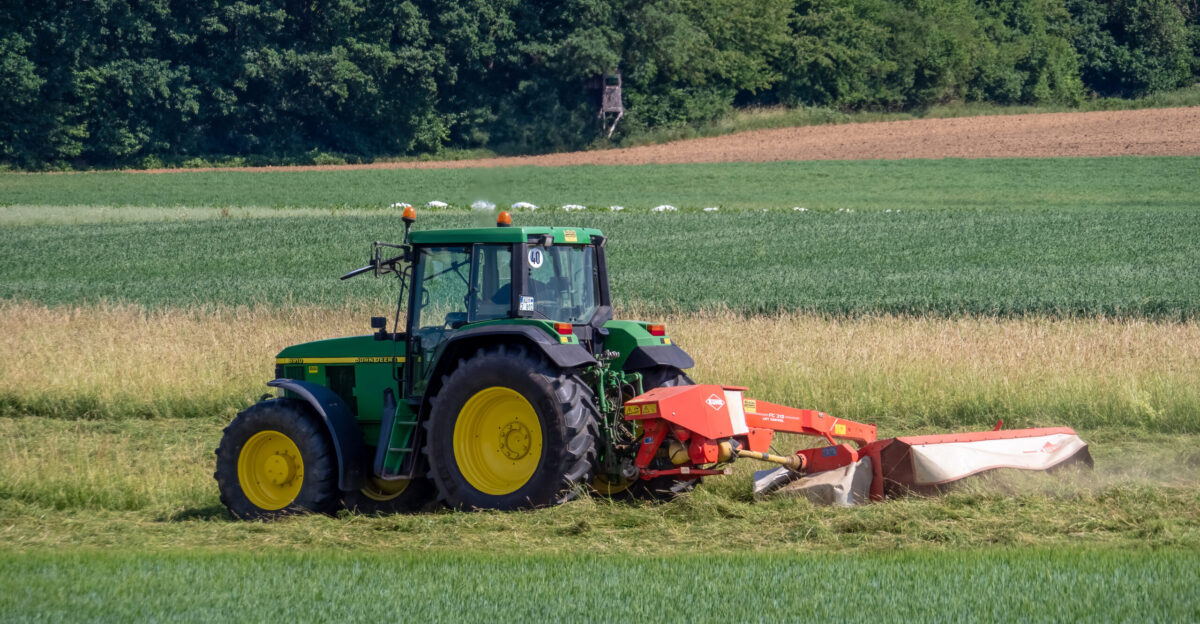
In August 2025, Deere executives warned that tariff costs could double to $600 million by year’s end, according to CNBC. This notice followed a 26% drop in net income compared to last year.
Steel tariffs and trade tensions under President Trump increased costs and made it harder for farmers to buy equipment.
September’s Blow
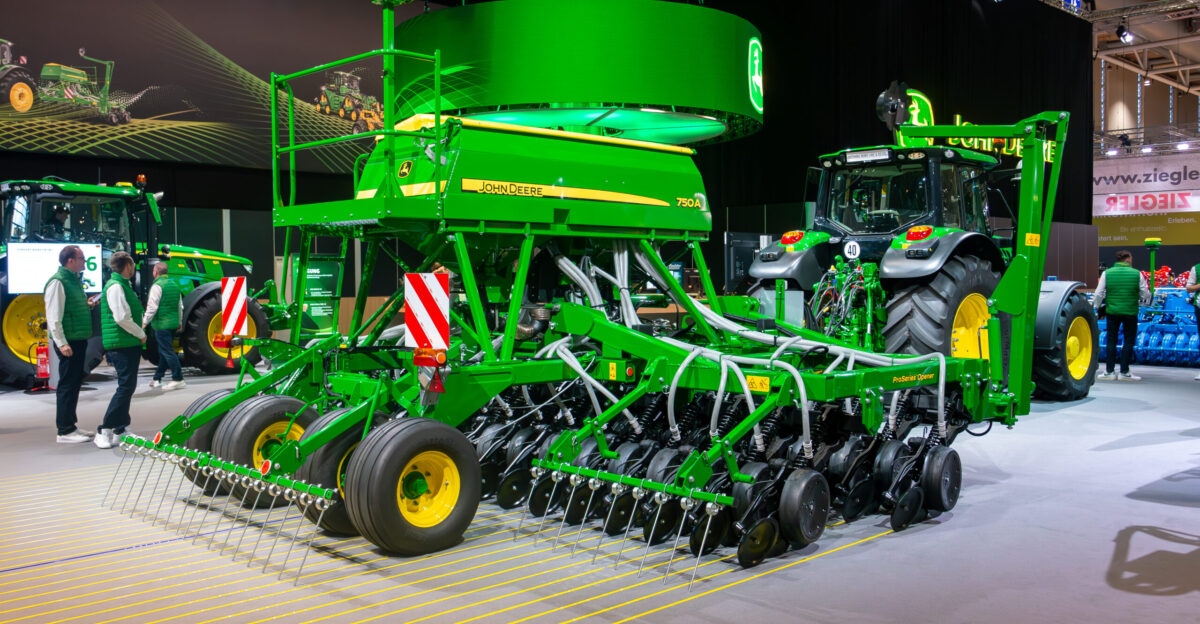
On September 17, 2025, Deere announced layoffs for 141 Iowa workers—101 at Waterloo Operations starting October 17 and 40 at Des Moines Works ending October 31.
This follows 71 layoffs in August, bringing the total for 2025 to 479 positions in Iowa. Deere cited “seasonal farming needs” and “decreased demand” as the reasons.
Communities Shattered
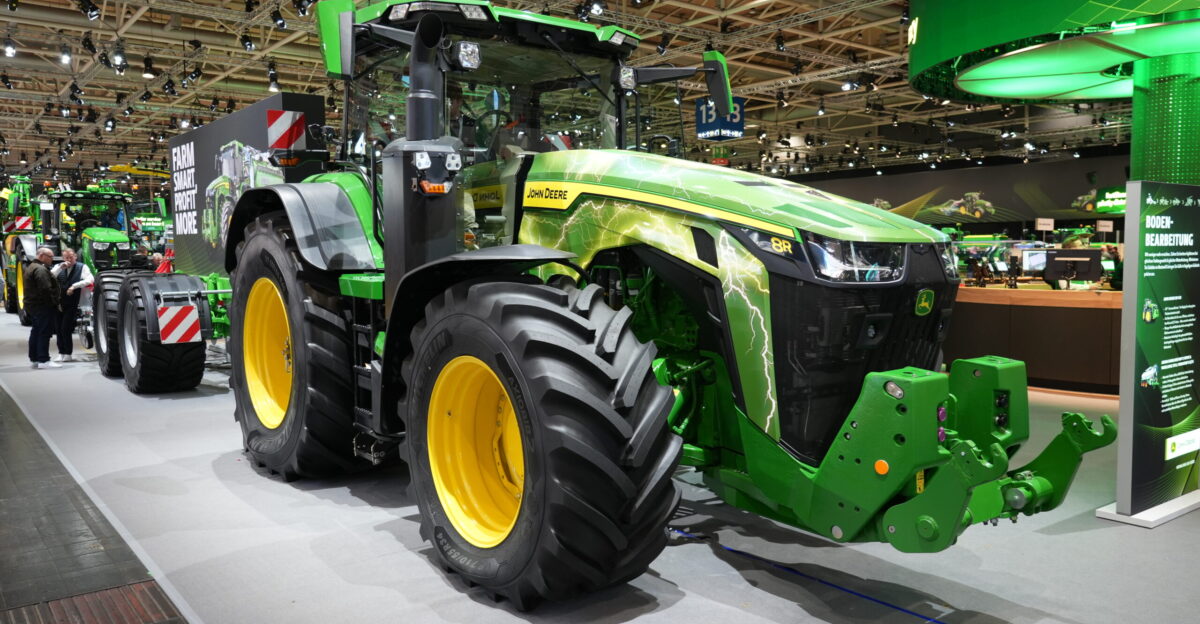
Waterloo, Ottumwa, Ankeny, and Davenport are struggling as Deere cuts back in Iowa. Many affected workers have long service.
According to Farm Equipment, they can receive extra unemployment benefits based on their tenure and transitional support that covers 50% of their average weekly earnings for up to one year.
Union Response
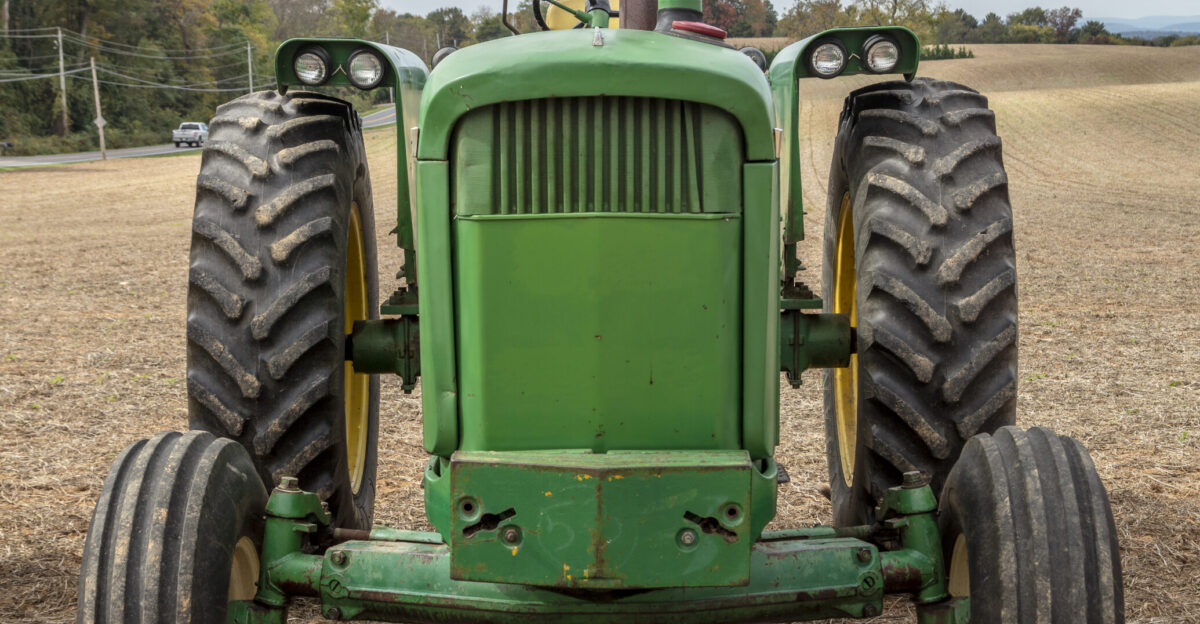
“The struggling agricultural economy continues to affect orders for John Deere equipment,” the company said after the September layoffs.
UAW Local 838 President Tim Cummings responded by urging the company to “stop outsourcing and bring these products back to our factories and allow our talented workforce to produce these products at home,” KWWL reported, underscoring the growing rift between management and labor.
Industry-Wide Decline
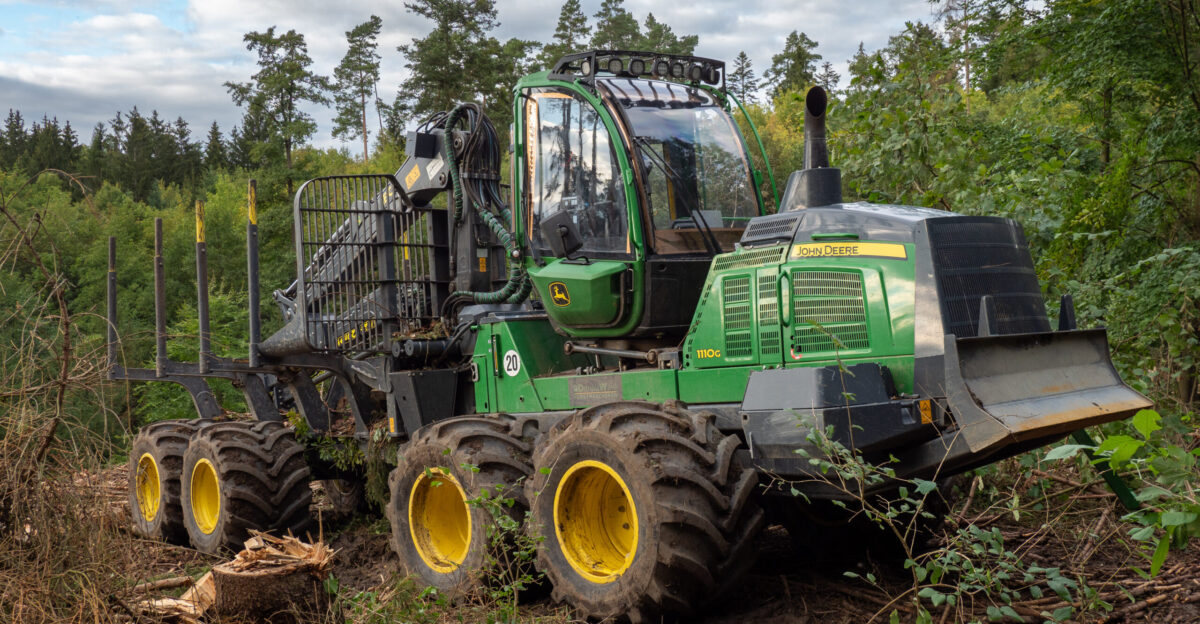
Deere is laying off workers amid a decline in U.S. manufacturing. In August 2025, the country lost 33,000 manufacturing jobs, with 12,000 gone in just that month, CBS News reported.
Due to tariff uncertainty and changing trade policies, many manufacturers are cutting jobs instead of expanding.
Structural Shift
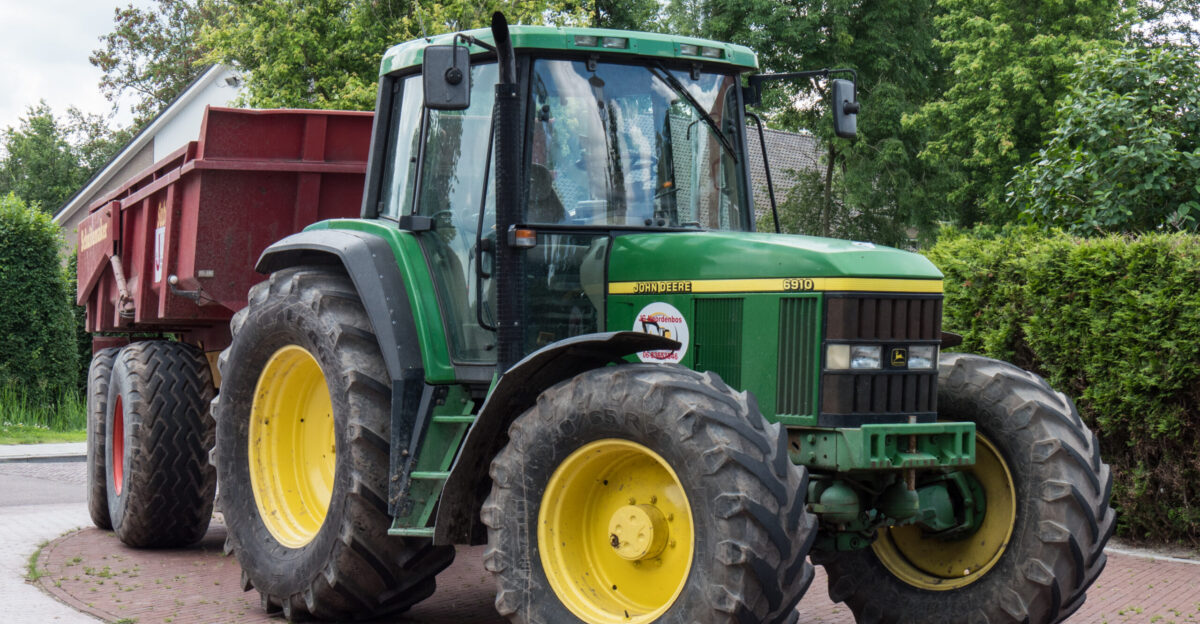
Manufacturing jobs in the U.S. have dropped over the past sixty years, from 34% of the workforce in 1960 to 8% in August 2025, with 12.7 million people still employed.
Deere’s job cuts in Iowa reflect a trend toward automation and production in lower-cost countries.
Mexico Investment
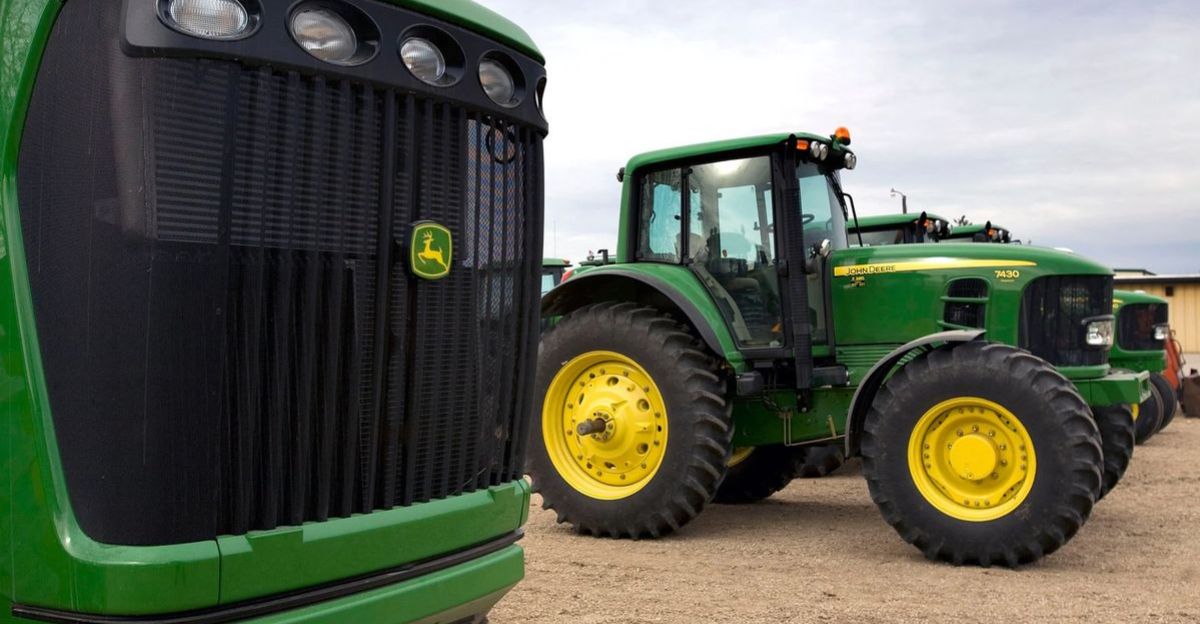
In November 2024, Deere announced a $55 million investment in a new plant in Nuevo León, Mexico, to produce mini track loaders and mini wheel loaders starting in 2026.
Regional manager Gecimar Morini stated that the project will proceed “regardless” of U.S. political changes. This will be Deere’s first Mexican facility dedicated solely to construction equipment.
Dubuque Exodus

In June 2024, Deere said it would shift production of mid-frame skid steer loaders and compact track loaders from its Dubuque Works facility in Iowa to a new plant in Ramos Arizpe, Mexico, by the end of 2026.
This move follows earlier relocations of cab manufacturing from Waterloo and other work from Ottumwa to Mexico, continuing a trend of offshoring key operations.
Trump’s Threat
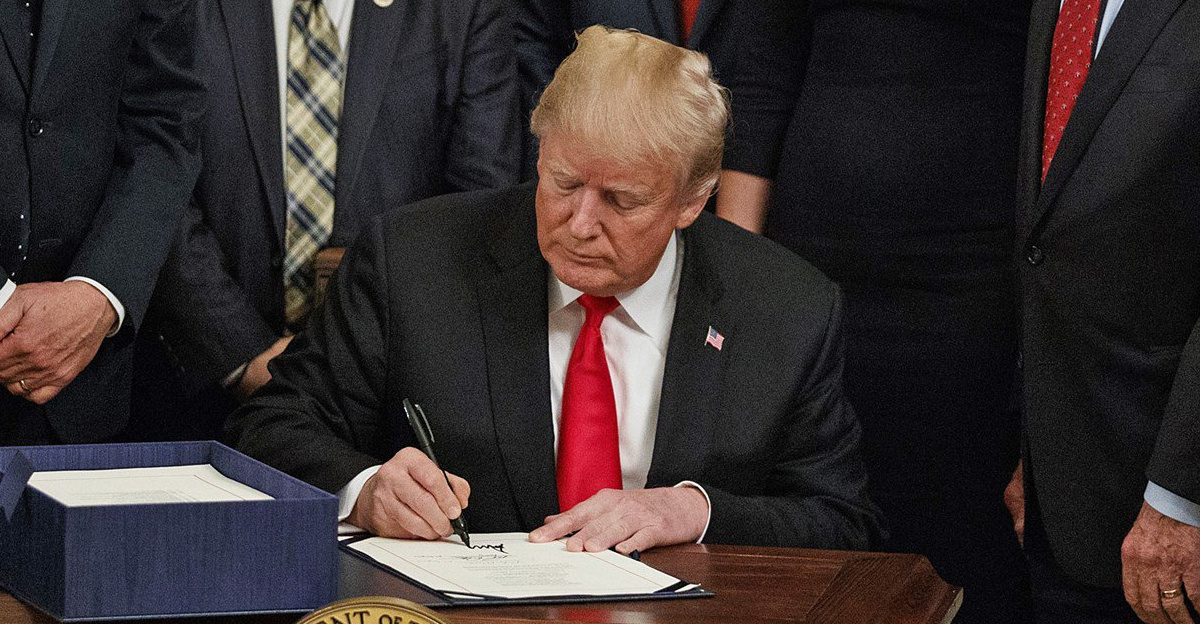
During a roundtable with farmers in Pennsylvania in September 2024, presidential candidate Donald Trump threatened to impose 200% tariffs on Deere if it moved more production to Mexico.
“You’re hurting our farmers, you’re hurting our manufacturing,” he said, according to Reuters. Deere’s stock dropped 1.6% after the statement, though the company maintained it was not shifting production to Mexico wholesale.
Corporate Deflection
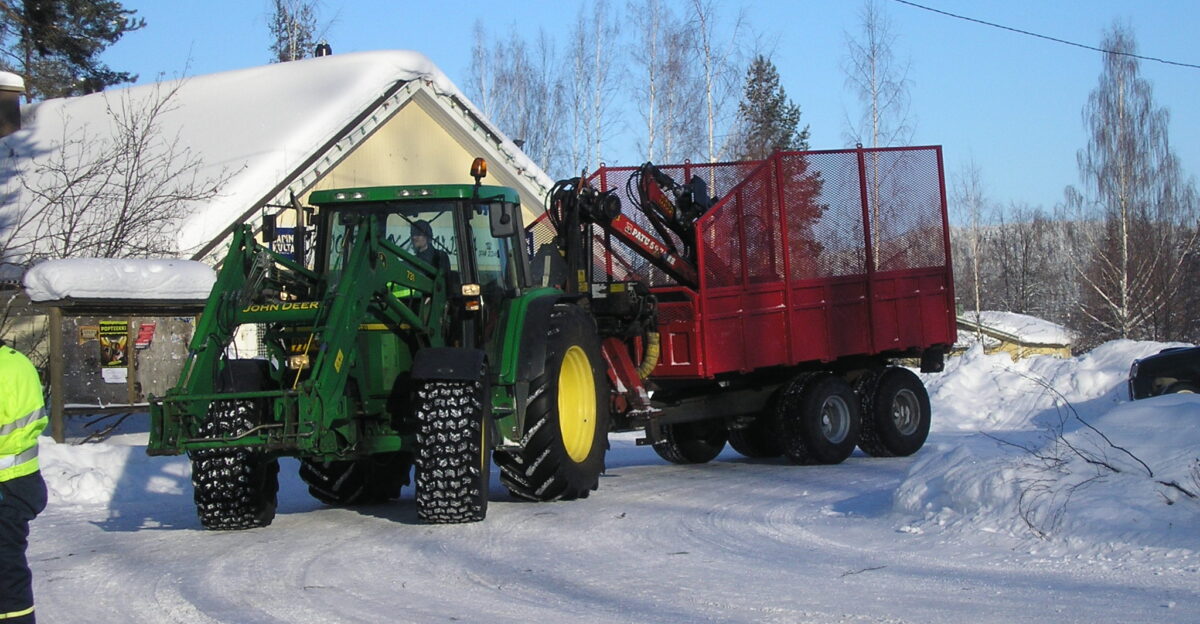
Deere has pledged $20 billion toward U.S. factory upgrades over the next decade, even as it closes lines in Iowa and grows its presence in Mexico.
In mid-October 2025, the company announced it would move product testing jobs from plants in Ottumwa and Des Moines to other locations in Iowa and Illinois, according to KCRG—a move that did little to reassure affected workers.
Analyst Skepticism
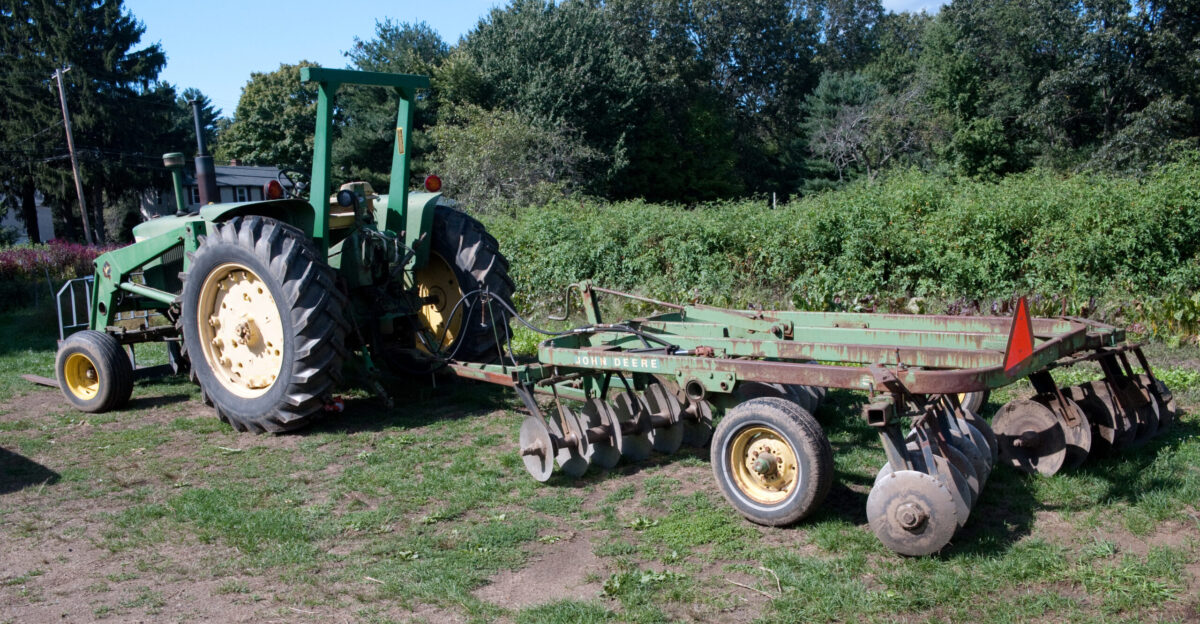
Industry analysts have questioned Deere’s approach—committing to major U.S. investments while continuing to cut domestic jobs and expand in Mexico.
Economists warn that steep tariffs could backfire, raising costs for American farmers—Deere’s primary customers—and potentially triggering a cycle where trade policy hurts both producers and consumers.
Looking Ahead
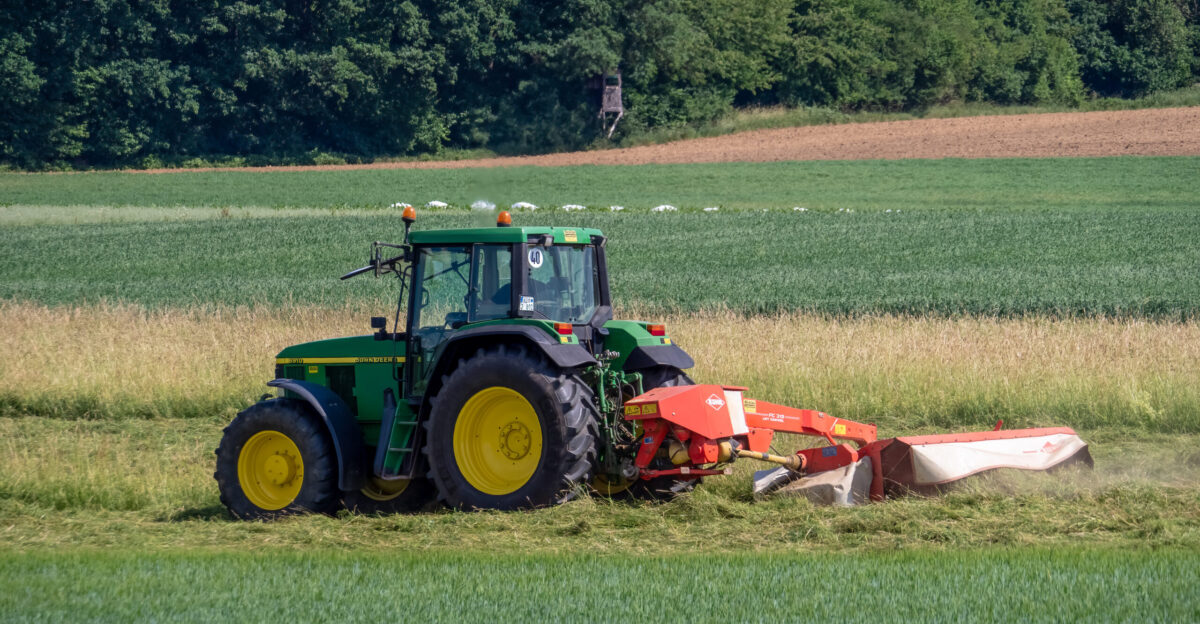
The 2026 review of the USMCA trade agreement could impact Deere’s strategy in Mexico, though agricultural machinery currently faces no tariffs under the pact.
For now, Iowa workers are left in limbo as the company weighs global competitiveness against domestic political pressure and union opposition.
Political Calculus
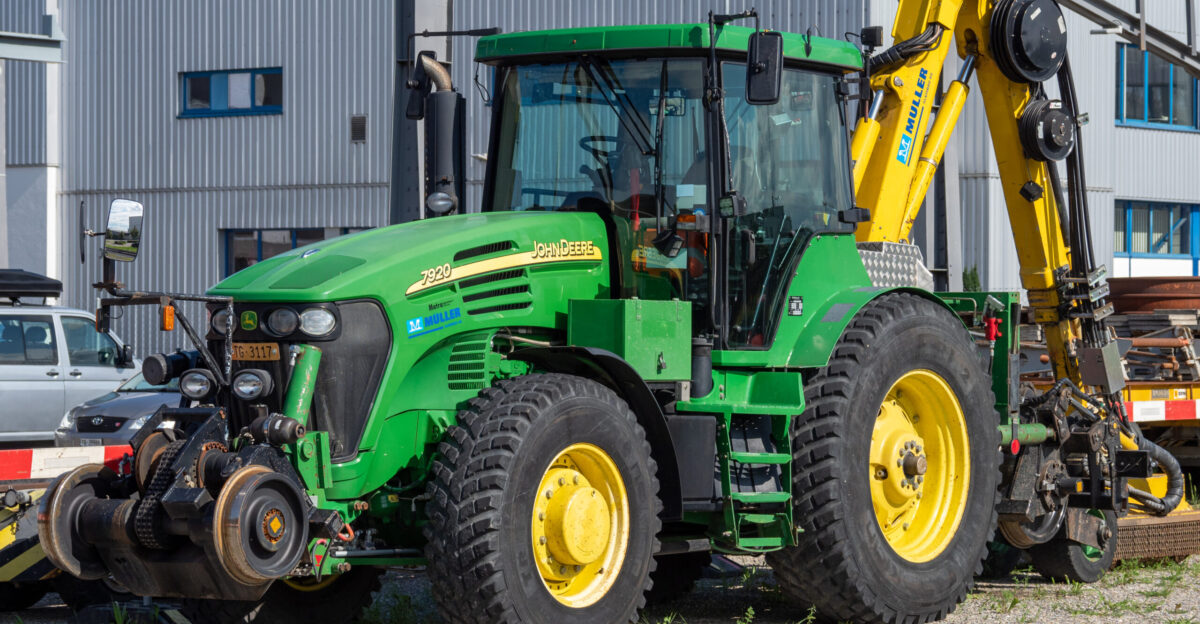
Deere’s layoffs became a political talking point throughout the 2024-2025 campaign season. Republicans called for reshoring jobs under the threat of new tariffs, while Democrats criticized the offshoring of manufacturing work.
Meanwhile, workers found themselves caught in the middle of a deepening economic and political divide.
Mexico Ascendant
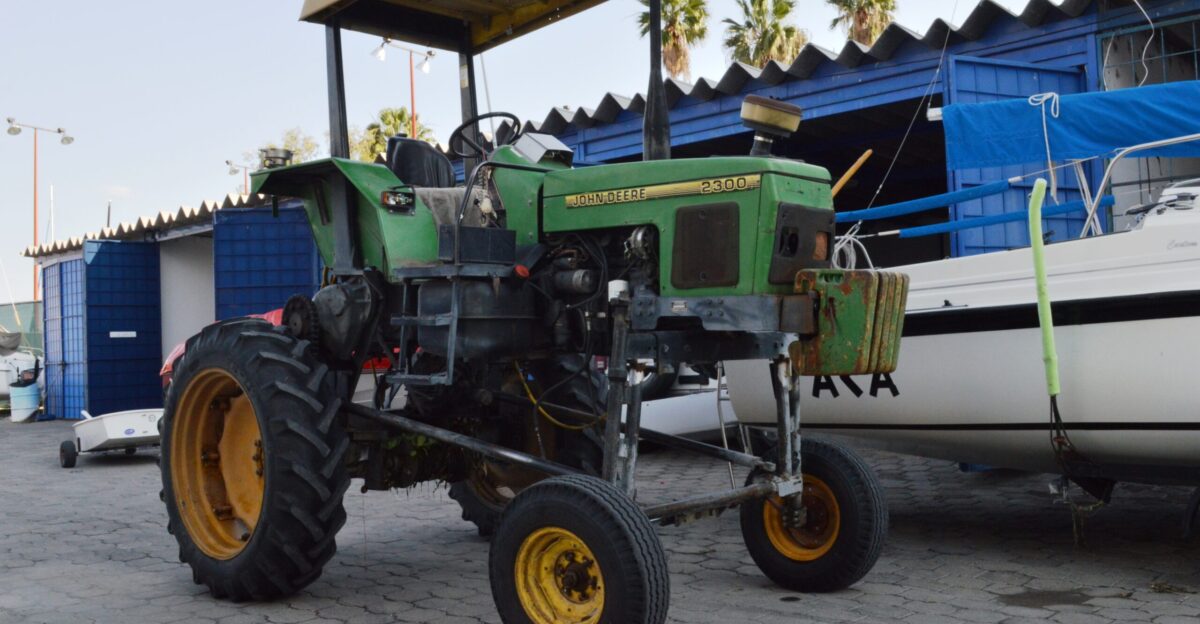
Mexico overtook China as the United States’ largest trading partner in 2023. It held that position through 2024, with $840 billion in trade—the largest annual total ever recorded between the U.S. and another country.
Mexico’s construction equipment market has surged 76% since 2022, attracting companies like John Deere and many others to invest there.
Farm Crisis
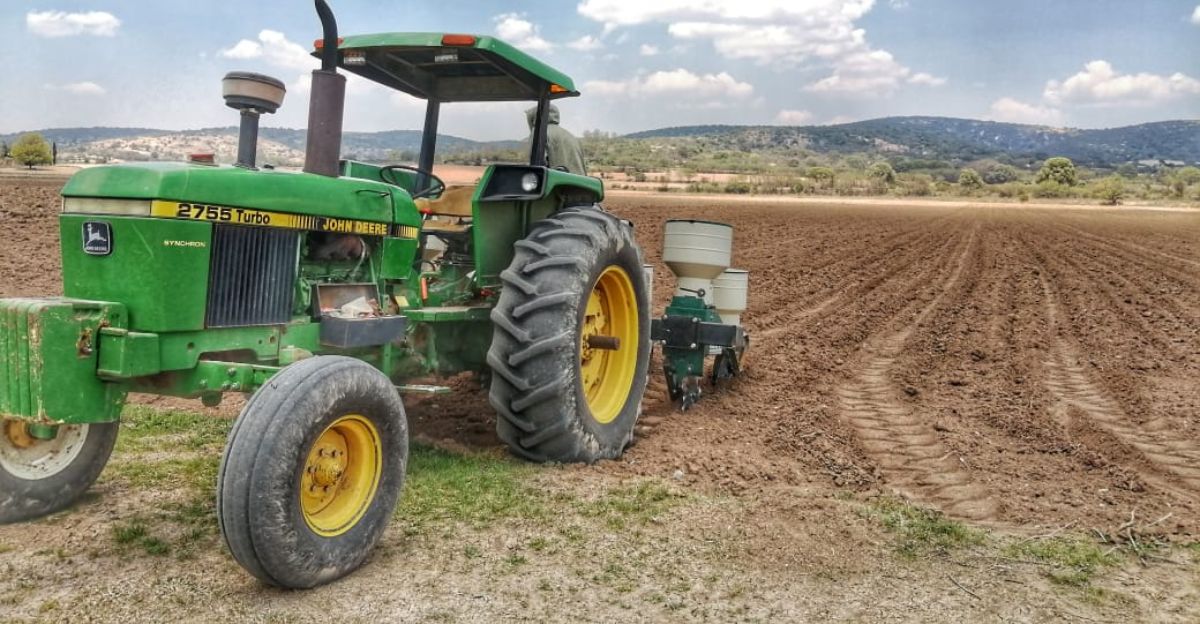
USDA projected 2025 net farm income would rebound 40.7% to $179.8 billion—but median farm household income from agricultural operations remains negative at -$1,189, according to agency forecasts, meaning typical farmers lose money on crops while depending on off-farm income and government payments.
Declining commodity prices devastated equipment purchases, with corn prices falling more than 30% from 2022 peaks while soybeans and wheat also dropped substantially, Reuters reported.
Cultural Betrayal

For generations, John Deere symbolized American agricultural ingenuity and Midwest industrial strength—tractors bearing the leaping deer logo represented quality, reliability, and patriotic manufacturing.
The company’s systematic dismantling of Iowa operations while enriching executives and expanding in Mexico shattered that mythology, transforming an icon into a cautionary tale about globalization’s human cost.
Broader Implications

John Deere’s Iowa exodus crystallizes America’s manufacturing dilemma: companies optimize for global competitiveness while communities hemorrhage middle-class jobs, executives prosper.
At the same time, workers scramble for half-pay transitional benefits, and trade policies whipsaw between protectionism and free-market orthodoxy. The question isn’t whether manufacturing jobs will continue migrating south—it’s whether policy can ever catch up to economic reality.